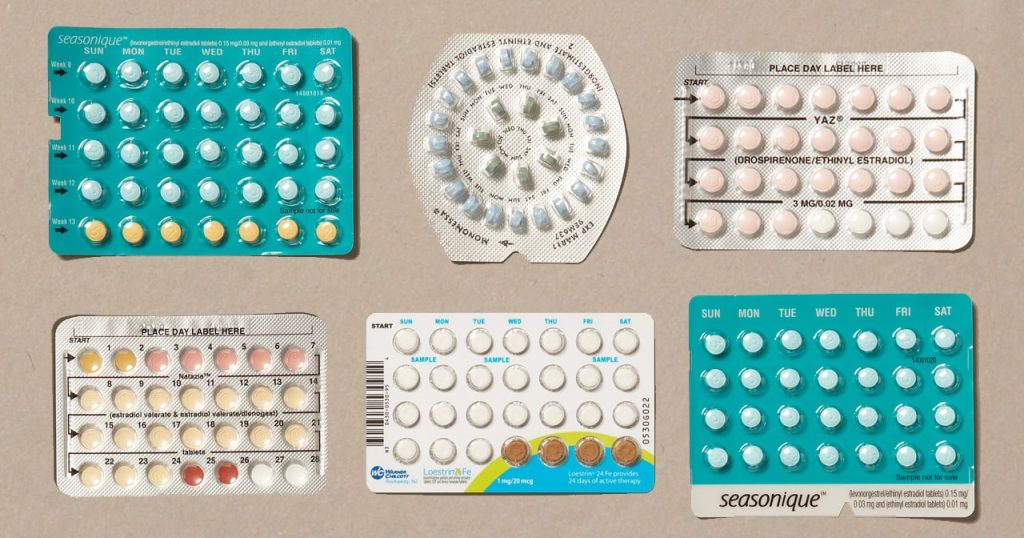
WHAT IS THE COMBINATION PILL?
As the name suggests, the combination pill is a combination of two female sex hormones that prevent pregnancy by changing the hormone balance in your body to stop ovulation (the monthly release of the egg from the ovary).
There are 28-day and 21-day packets, the only difference being the 7 inactive ‘sugar’ pills in the 28-day packet.
HOW EFFECTIVE IS THE PILL?
If taken according to instructions, the pill is at least 99% effective.
WHEN ARE SAFE?
The pill will prevent pregnancy after you have taken the first seven active pills in a row, including taking a new pack starting from day 1 of your cycle (i.e. the first day of bleeding).
HOW IT COMMENCED?
This varies according to the type of pill prescribed, so follow the instructions that come with the pill packet. It is usual to start the 28-day pack on the first day of bleeding of your next period and the 21-day pack on the fifth day of your cycle or on a particular day (e.g. Saturday) after your next period starts.
WHEN AND HOW IT’S TAKEN?
The tablet should be swallowed whole with a small amount of water. It does not matter what time of the day you take it, but it is important to get into the habit of taking the pill at the same time (e.g. after breakfast or at bedtime).
WHAT IF A PILL IS MISSED OR TAKEN LATE?
The 7-day rule
- Take the forgotten pill as soon as possible, even if it means taking two pills in 1 day.
- Take the next pill at the usual time and finish the course.
- If you forget to take the missed pill for more than 12 hours after the usual time, there is an increased risk of pregnancy so use another form of contraception (such as condoms) for 7 days.
- If these 7 days run beyond the last hormone pill in the packet, miss out on the inactive pills (or 7-day group) and proceed directly to the first hormone pill in the next pack.
HOW DOES IT AFFECT PERIODS?
Periods tend to become shorter, regular, and lighter. The blood loss may be the brownish color of old blood. The pill also tends to help painful periods.
IS A BREAK FROM THE PILL NECESSARY?
There is no reason to take a break from the pill. It is best to continue on until pregnancy is contemplated
WHAT IF A PERIOD IS MISSED?
If you miss a period, you should continue taking the pill but check with your doctor to exclude pregnancy.
IS IT SAFE DURING LACTATION?
The pill can interfere with the quantity and quality of breast milk, so it is better to use another type of contraception
during breastfeeding. If a pill is used, the most appropriate is a progestogen-only pill.
WHAT ARE THE UNWANTED EFFECT?
The most common side effects are nausea (feeling sick), breast tenderness, and breakthrough spotting (i.e. bleeding between your usual periods). These side effects tend to disappear after a couple of months on the pill. More serious (although uncommon) effects include migraine headaches, high blood pressure, and a tendency to form clots in the veins.
To check if it is safe for you to take the pill, refer to the instruction leaflet that comes with the pill, or consult your doctor.
WHAT ABOUT ALCOHOL AND OTHER DRUG?
Alcohol in moderation does not appear to interfere with the pill. Medications that can reduce the effectiveness of the pill include antibiotics, vitamin C, and drugs to treat epilepsy and tuberculosis. The pill may affect blood-thinning drugs and some drugs taken for diabetes.
Check with your doctor. If you are taking antibiotics, continue the pill, use another contraceptive method during the course, and follow the 7-day rule when the course is finished.
WHAT ARE SPECIAL RULE TO FOLLOW?
- Smoking creates a health risk with the pill, so avoid smoking while on the pill.
- Make sure you tell a doctor if you are taking the pill when another medicine is about to be prescribed.
- Natural products used in complementary medicine may affect the pill.
- Diarrhea and vomiting may reduce the effectiveness of the pill—use additional contraception until you finish the course. (Follow the 7-day rule.)
- Report persistent or heavy bleeding between periods.
- Report any onset of blurred vision, severe headache, or pain in the chest or limbs.
- Return for a check-up every 12 months while you are on the pill.
- Perform breast self-examination regularly and have a Pap test every 2 years.
- Remember that the pill is highly effective, but pregnancy can occur if the pill is taken at irregular times, if illnesses such as fever and gastric upsets develop, or if you are taking other drugs.
